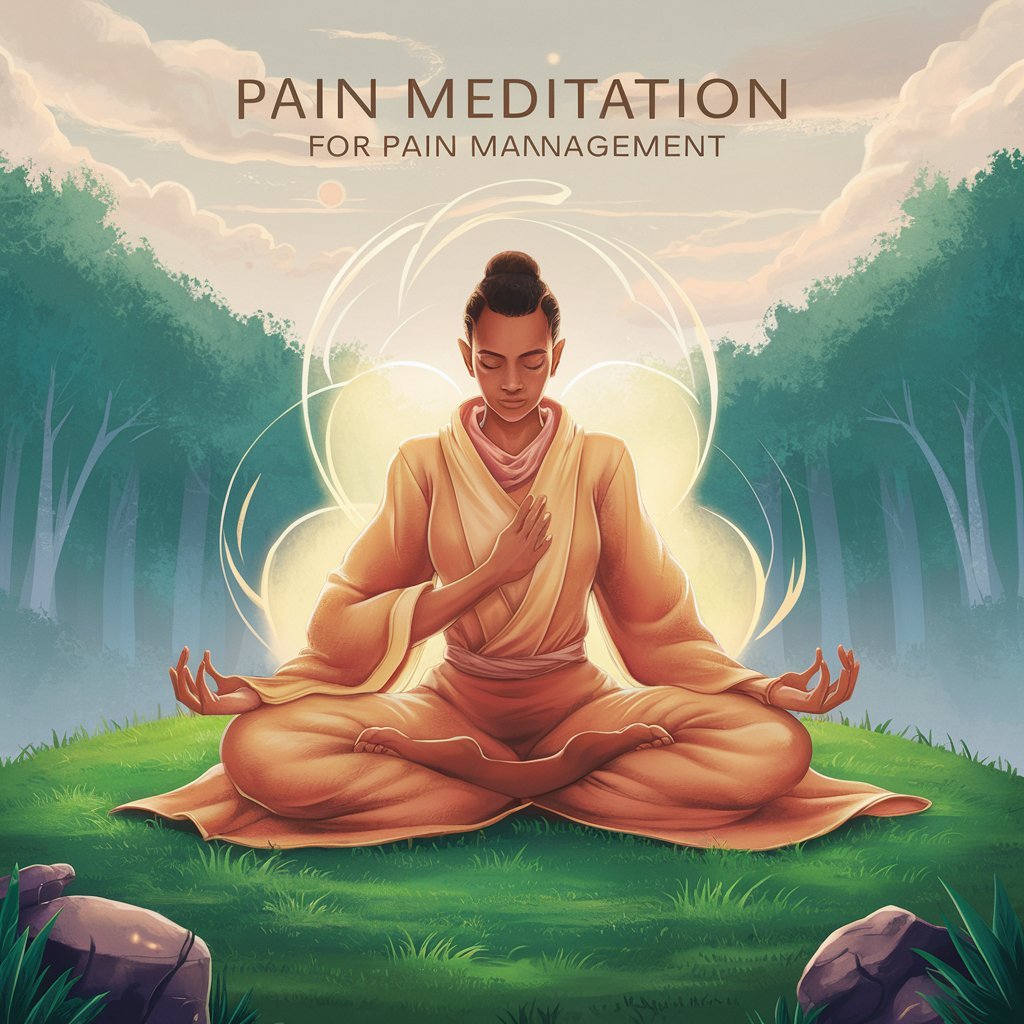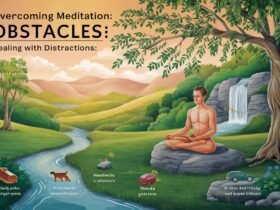Meditation and Chronic Illness: Finding Solace and Healing
Hey there, my brave and resilient friends of 2024! It’s your favorite mindfulness explorer, Nita Sharda, here to take you on a journey into the world of meditation and chronic illness. Now, I know what some of you might be thinking – “Chronic illness? Isn’t that just for old people or people who are really sick?” And I totally get it – when we’re young and healthy, it can be hard to imagine what it’s like to live with a condition that doesn’t go away, or to feel like our bodies are not working the way they should.
But here’s the thing – chronic illness is not just about being sick or in pain. It’s about learning to live with a condition that may affect every aspect of our lives, from our physical abilities to our emotional well-being to our relationships and dreams for the future. And while it’s true that chronic illness is more common in older adults, it can affect people of all ages, including children and teenagers.
The good news is, there is hope and support available for anyone who is living with a chronic illness or caring for someone who is. And one of the most powerful tools we have for finding solace and healing in the face of chronic illness is meditation.
Today, we’re going to explore what chronic illness is all about, how it can impact our lives and the lives of those around us, and how meditation can offer a pathway to greater peace, resilience, and well-being, even in the midst of challenges. But before we dive in, let me make one thing clear – this is not about trying to “fix” or “cure” chronic illness, or to deny the very real struggles and emotions that come with it. It’s about learning to be present with what is, to cultivate compassion and acceptance for ourselves and others, and to find moments of joy, connection, and meaning, even in difficult times.
So, let’s approach this topic with an open heart, a curious mind, and a willingness to embrace both the light and the shadow of the chronic illness experience. Are you ready to explore the transformative power of meditation for chronic illness? Let’s take a deep breath, find a comfortable seat, and begin.
What is Chronic Illness, and How Does it Impact Our Lives?
First things first, let’s talk about what chronic illness actually is. Chronic illness is a term used to describe a wide range of health conditions that last for a long time, often for months, years, or even a lifetime. These conditions may be physical, mental, or both, and can vary in severity from mild to life-threatening.
Some examples of chronic illnesses include:
- Asthma
- Diabetes
- Arthritis
- Crohn’s disease
- Multiple sclerosis
- Lupus
- Chronic fatigue syndrome
- Fibromyalgia
- Depression
- Anxiety disorders
While each chronic illness is unique and can affect people differently, there are some common challenges and experiences that many people with chronic illness face, such as:
- Physical symptoms like pain, fatigue, or difficulty moving or breathing
- Emotional symptoms like sadness, anger, or fear about the future
- Social isolation or stigma, as others may not understand or know how to support someone with a chronic illness
- Difficulty performing daily activities or pursuing goals and dreams
- Financial strain from medical bills, lost income, or other expenses related to managing the illness
- Uncertainty and unpredictability, as symptoms may come and go or change over time
Living with a chronic illness can be a rollercoaster of ups and downs, good days and bad days, and a constant process of adapting to new challenges and finding ways to cope. It can also be a profound opportunity for growth, learning, and transformation, as we discover new strengths, priorities, and perspectives on what really matters in life.
But no matter where we are on the chronic illness journey, it’s important to remember that we are not alone, and that there are many resources and tools available to support us along the way. And one of the most accessible and powerful of these tools is meditation.
How Meditation Can Help Us Cope with Chronic Illness
So, how exactly can meditation help us navigate the ups and downs of chronic illness? Here are just a few of the many ways:
Meditation Reduces Stress and Promotes Relaxation
One of the biggest challenges of living with a chronic illness is managing the stress and anxiety that often come with it. Whether it’s worrying about the future, dealing with difficult symptoms or treatments, or feeling overwhelmed by the demands of daily life, stress can take a big toll on our physical and emotional health.
But meditation is a powerful tool for reducing stress and promoting relaxation, by calming the nervous system, lowering cortisol levels, and activating the body’s natural relaxation response. When we meditate, we practice focusing our attention on the present moment, without judgment or expectation. We learn to observe our thoughts and feelings with curiosity and acceptance, rather than getting caught up in them or trying to push them away.
Over time, this practice of mindfulness can help us develop greater resilience and equanimity in the face of stress and challenges. We may find that we are better able to stay grounded and centered, even when things feel chaotic or overwhelming. We may also experience physical benefits like lower blood pressure, improved sleep, and reduced pain and inflammation.
Meditation Cultivates Self-Compassion and Acceptance
Another big challenge of living with a chronic illness is learning to accept and love ourselves, even when our bodies or minds are not working the way we want them to. It’s easy to fall into patterns of self-blame, self-criticism, or even self-hatred, especially when we feel like we are not measuring up to our own or others’ expectations.
But meditation is a powerful tool for cultivating self-compassion and acceptance, by helping us to see ourselves with kindness, understanding, and forgiveness. When we meditate, we practice being present with ourselves just as we are, without trying to change or fix anything. We learn to extend the same warmth and care to ourselves that we would offer to a dear friend or loved one who was struggling.
Over time, this practice of self-compassion can help us to develop a more loving and accepting relationship with ourselves, even in the face of chronic illness. We may find that we are better able to embrace our own humanity, with all its flaws and imperfections, and to treat ourselves with gentleness and respect, even on the hard days.
Meditation Enhances Mind-Body Connection and Awareness
A third way that meditation can help us cope with chronic illness is by enhancing our mind-body connection and awareness. When we are living with a chronic condition, it’s easy to feel disconnected or even at war with our own bodies, especially when they are not functioning the way we want them to.
But meditation is a powerful tool for bridging the gap between mind and body, and for developing a deeper sense of embodied presence and awareness. When we meditate, we practice tuning into the sensations, rhythms, and messages of our bodies, without judgment or agenda. We learn to listen to what our bodies are telling us, whether it’s a need for rest, nourishment, movement, or connection.
Over time, this practice of mind-body awareness can help us to develop a more compassionate and collaborative relationship with our bodies, even in the face of chronic illness. We may find that we are better able to honor our own needs and limitations, to make choices that support our health and well-being, and to find new ways of moving, breathing, and being in the world that feel good and right for us.
Meditation Fosters Connection and Support
Finally, meditation can also be a powerful tool for fostering connection and support, both within ourselves and with others. When we are living with a chronic illness, it’s easy to feel isolated, misunderstood, or even invisible, especially if our condition is not visible or well-known to others.
But meditation is a practice that can help us to cultivate a deep sense of inner connection and belonging, even in the face of external challenges or limitations. When we meditate, we practice being present with ourselves and our experiences, without needing to change or escape them. We learn to find moments of peace, joy, and meaning, even in the midst of difficulty or pain.
At the same time, meditation can also be a way of connecting with others who are on a similar journey, whether it’s through a shared practice, a support group, or simply a sense of common humanity. When we meditate with others, we create a space of mutual understanding, compassion, and solidarity, where we can feel seen, heard, and supported, even in our most vulnerable moments.
Over time, this practice of connection and support can help us to feel less alone and more resilient in the face of chronic illness. We may find that we are better able to reach out for help when we need it, to share our stories and experiences with others, and to find new sources of strength, inspiration, and hope in our communities and beyond.
Simple Meditation Practices for Chronic Illness
So, now that we know how meditation can help us cope with chronic illness, let’s explore some simple practices that you can try at home or wherever you are, to start bringing more peace, ease, and healing into your life. Remember,









1 Comment